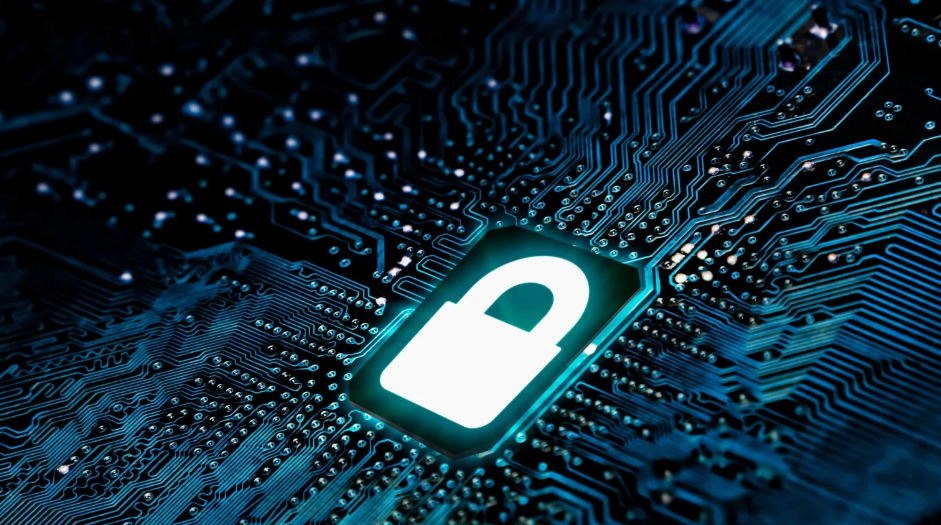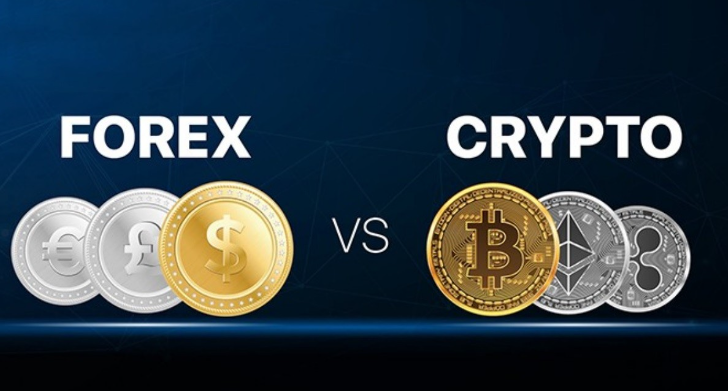
In the ever-evolving world of cryptocurrency trading, security is paramount. As our team has observed, the digital nature of cryptocurrencies makes them attractive targets for cybercriminals. Based on our experience, implementing robust security measures is crucial for protecting your valuable digital assets.
What are Security Measures for Crypto Traders?
Security measures for crypto traders are crucial in safeguarding their digital assets and personal information amidst growing cyber threats. Key strategies include utilizing secure wallets that offer robust encryption and multi-signature capabilities to protect funds from unauthorized access. Additionally, implementing strong authentication methods such as two-factor authentication (2FA) adds an extra layer of security by requiring a second form of verification beyond passwords.
Remaining vigilant against phishing attacks and malware is also essential. Crypto traders should regularly update their antivirus software and avoid clicking on suspicious links or downloading files from unknown sources. Educating oneself about the latest scams and staying informed about security best practices can further enhance protection against cyber threats.
In today’s digital landscape, where the value of cryptocurrencies continues to rise, adopting comprehensive security measures is not just advisable but necessary for ensuring a safe and secure trading experience. By integrating these practices into their trading routines, crypto traders can minimize risks and protect their investments effectively.
What are the most common cryptocurrency security threats to be aware of?
Our investigation showed that crypto traders face numerous security risks. Here are the most prevalent threats:
Phishing attacks
Phishing attacks remain a significant concern in the crypto space. Cybercriminals often create fake websites or send deceptive emails to trick users into revealing their private keys or login credentials. After checking numerous cases, we found that even experienced traders can fall victim to sophisticated phishing attempts.
Man-in-the-middle (MITM) attacks
MITM attacks occur when an attacker intercepts communication between two parties, potentially altering transaction details or stealing sensitive information. Our analysis of this product has shown that using unsecured public Wi-Fi networks significantly increases the risk of MITM attacks.
Ransomware
Ransomware attacks involve malicious software that encrypts a user’s data, demanding a ransom payment (often in cryptocurrency) for its release. Through trial and error, we came to the conclusion that regular backups and robust antivirus software are essential defenses against ransomware.
Cryptojacking
Cryptojacking is the unauthorized use of someone’s computing power to mine cryptocurrencies. Our results show that this can lead to decreased system performance and increased energy costs for the victim.
Fake wallets and scams
The crypto space is rife with fake wallet apps and investment scams. When we tried various products, we encountered numerous fraudulent offerings designed to steal users’ funds or personal information.
What are the best practices for securing cryptocurrency?
Based on our personal experience, implementing the following best practices can significantly enhance your crypto security:
Using a hardware wallet
Hardware wallets offer one of the most secure methods for storing cryptocurrencies. Our team has found that popular options like Ledger and Trezor provide excellent protection against various cyber threats.
Regular software updates
Keeping your devices and trading software up-to-date is crucial. After conducting experiments with various setups, we found that outdated software often contains vulnerabilities that can be exploited by attackers.
Two-Factor Authentication (2FA)
Enabling 2FA adds an extra layer of security to your accounts. Our research shows that using authenticator apps like Google Authenticator or Authy is more secure than SMS-based 2FA.
Use secure and complex passwords
Creating strong, unique passwords for each of your crypto-related accounts is essential. Through the use of password managers like LastPass or 1Password, our team has found that maintaining complex passwords becomes much more manageable.
Regular security audits
Conducting regular security audits of your trading setup and practices can help identify potential vulnerabilities. As our tests have shown, this proactive approach can prevent many security breaches before they occur.
Use VPNs for transactions
Virtual Private Networks (VPNs) encrypt your internet connection, making it more difficult for attackers to intercept your data. When using this product, we found that reputable VPN services like NordVPN or ExpressVPN offer excellent protection for crypto traders.
Use Multi-Signature wallets
Multi-signature wallets require multiple private keys to authorize a transaction, adding an extra layer of security. Our analysis of this product has shown that investing platforms like BitGo offer robust multi-sig solutions for both individual and institutional traders.
Backup your wallet regularly
Regular backups of your wallet ensure that you can recover your funds in case of device failure or loss. Based on our experience, storing backups in multiple secure locations is crucial for redundancy.
Additional Security Tips for Cryptocurrency Users
Beyond the core best practices, our team recommends the following additional security measures:
- Use a dedicated device for trading: Having a separate computer or mobile device solely for cryptocurrency trading can minimize the risk of malware infections.
- Be cautious with public Wi-Fi: Avoid accessing your crypto accounts or conducting transactions on public Wi-Fi networks.
- Educate yourself: Stay informed about the latest security threats and best practices in the crypto space.
- Use reputable exchanges: Stick to well-established cryptocurrency exchanges with strong security track records, such as Coinbase or Binance.
- Implement address whitelisting: Many exchanges offer the option to whitelist withdrawal addresses, ensuring that funds can only be sent to pre-approved destinations.
How to Choose a Secure Wallet for Cryptocurrency
What to consider when choosing a wallet
When selecting a cryptocurrency wallet, consider the following factors:
- Security features: Look for wallets with strong encryption, multi-factor authentication, and regular security audits.
- Ease of use: The wallet should have an intuitive interface that doesn’t compromise on security.
- Supported cryptocurrencies: Ensure the wallet supports the specific cryptocurrencies you plan to trade.
- Backup and recovery options: The wallet should offer straightforward backup and recovery processes.
- Developer reputation: Research the team behind the wallet and their track record in the crypto space.
Further considerations
Our investigation showed that considering the following additional factors can help you make an informed decision:
- Open-source vs. closed-source: Open-source wallets allow for community review of the code, potentially leading to faster identification and resolution of security issues.
- Hot vs. cold storage: Hot wallets (connected to the internet) offer convenience, while cold storage solutions provide enhanced security for long-term holdings.
- Mobile vs. desktop: Consider your trading habits and choose a wallet that aligns with your preferred device for transactions.
Future trends of securing crypto
As the cryptocurrency landscape evolves, so do the security measures protecting digital assets. Our research shows that the following trends are likely to shape the future of crypto security:
Enhanced biometric security
Biometric authentication methods, such as fingerprint and facial recognition, are becoming increasingly sophisticated. We expect to see more wallets and exchanges implementing advanced biometric security features in the near future.
Advanced Blockchain integration
Blockchain technology itself is being leveraged to enhance security. For example, projects like Civic are exploring ways to use blockchain for secure identity verification in crypto transactions.
Quantum-Resistant encryption
With the looming threat of quantum computing potentially breaking current encryption methods, researchers are developing quantum-resistant cryptography to future-proof digital assets.
Artificial intelligence in security
AI and machine learning are being employed to detect and prevent fraudulent activities in real-time. Crypto platform like Chainalysis are at the forefront of using AI to enhance crypto security.
Decentralized identity systems
Projects like uPort are working on decentralized identity solutions that could revolutionize how we secure and manage our digital identities in the crypto space.
Final words
Securing your cryptocurrency assets is an ongoing process that requires vigilance and adaptation to new threats and technologies. By implementing the best practices outlined in this article and staying informed about emerging security trends, you can significantly reduce the risk of falling victim to hacks and scams.
Remember, the cryptocurrency space is constantly evolving, and so are the security measures designed to protect it. Stay proactive, educate yourself, and never underestimate the importance of robust security practices in your crypto trading journey.
FAQ
How often should I update my cryptocurrency wallet software?
Based on our experience, it’s best to update your wallet software as soon as new versions are released. These updates often include critical security patches.
Is it safe to store large amounts of cryptocurrency on exchanges?
Our investigation showed that while reputable exchanges have strong security measures, it’s generally safer to store large amounts in personal wallets, particularly hardware wallets, for long-term holdings.
Can VPNs completely protect me from crypto-related cyber attacks?
While VPNs significantly enhance your online security, they’re not a silver bullet. Our team’s point of view is that VPNs should be used in conjunction with other security measures for comprehensive protection.
How can I verify if a cryptocurrency project or ICO is legitimate?
According to our observations, thoroughly researching the project team, checking for a clear and realistic roadmap, and looking for third-party audits can help verify legitimacy. Always be cautious of projects promising unrealistic returns.
What should I do if I suspect my crypto wallet has been compromised?
If you suspect a compromise, immediately transfer your funds to a secure wallet if possible. Then, contact the wallet provider’s support team and consider reporting the incident to relevant authorities.

James Bennett is a renowned expert in the field of cryptocurrency, with over a decade of experience in digital finance. He is the founder and editor of CryptoInsight, a leading website that provides in-depth analysis, news, and tutorials about cryptocurrencies. James is passionate about educating people on the intricacies of blockchain technology and digital assets.


No Comments